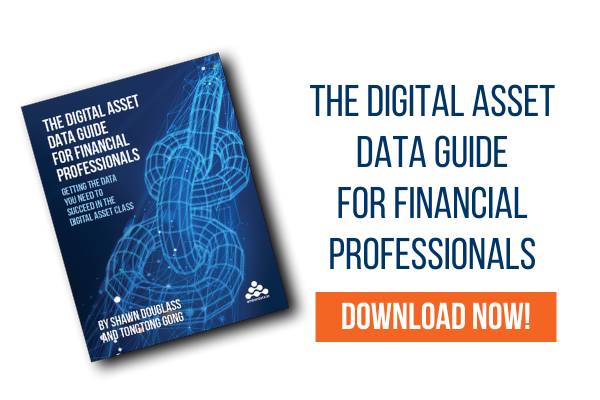Hedge Funds Dive Into Crypto as Institutional Adoption Grows

If there was still any doubt about whether or not cryptocurrency would be embraced by institutional investors, recent announcements by luminaries such as Alan Howard and Paul Tudor Jones that their firms will be entering the asset class should put those to rest. Other well-known hedge fund managers who have publicly expressed support for cryptocurrency, even if their firms have not yet entered the class, include Ray Dalio and Steve Cohen.
While cryptocurrency hedge funds have been around for several years, their combined assets under management (roughly $3.8 billion as of 2020, according to PwC) are dwarfed by the capital reserves traditional hedge funds can tap to buy digital assets.
According to the Wall Street Journal, Alan Howard's fund, Brevan Howard, founded a crypto division in September 2021 that already has over $250 million in assets under management with a team of 12 portfolio managers.
While these figures are a fraction of the $3 trillion total assets managed by hedge funds, the pace of crypto adoption is accelerating rapidly. The Financial Times reported last summer that hedge funds expect to allocate 7% of assets to crypto "within five years," and according to EY, nearly 25% of hedge fund managers expect to increase their exposure to digital assets in the near future.
Why is hedge fund adoption of crypto accelerating?
While numerous factors have caused hedge funds to take crypto seriously and enter the asset class, two stand out above the rest: increased regulatory clarity, and the arrival of institutional-grade tools for managing challenges that require specific solutions in the digital asset space, including custody and data collection.
Regulatory clarity
Regulatory uncertainty makes it challenging to adequately gauge and manage risk, which is critical for hedge funds to be successful. The growth of the digital asset class has prompted governments to pay more attention to the sector and to begin developing regulations. As a result, institutions feel more confident allocating resources to developing digital asset strategies and increasing their cryptocurrency holdings.
President Biden's "Executive Order on Ensuring Responsible Development of Digital Assets" issued last month should prompt more funds to enter the sector in the coming months, especially once agencies begin publishing recommendations and reports.
Custodial solutions
While crypto-specific regulations remain in their early stages, broader securities regulations are well-established.
One area where compliance is more challenging for digital assets is custody. The SEC's custody rule "requires registered investment advisers with possession of their clients' assets to implement controls to protect those assets from being lost, misused, misappropriated or subject to the advisers' financial reverses."
Because digital assets are "held" in a completely different manner from traditional assets and each cryptoasset has its own storage needs, institutions require dedicated custodial solutions to be able to safely and securely store digital assets while remaining compliant with the custody rule. These solutions are relatively new – Coinbase's custodial solution, for example, was launched in 2018 – and many institutions have understandably chosen to wait until these products mature, especially given the rapid evolution of the digital asset space.
Digital asset data solutions
Another development that has enabled increased hedge fund participation in cryptocurrency is the rise of digital asset data providers. Like other institutions, hedge funds need reliable access to trustworthy data sets to power their strategies. Still, digital asset data is significantly more complex and harder to make usable than traditional financial data, and developing in-house solutions is almost prohibitively expensive and time-consuming.
Like institutional-grade cryptoasset custodial solutions, institutional-grade digital asset data providers are a relatively recent development. As the rapidly growing adoption of crypto by hedge funds shows, however, these solutions have also matured.
For best results, hedge funds exploring the digital asset space should source their data from a provider that offers both market and on-chain data and 24x7x365 reliability. Amberdata is the leading provider of digital asset data to financial institutions, offering data sets for over 100 exchanges, 12 blockchains, over 32,000 traded pairs, and 67 indicators. Request a demo today to learn more about how the Amberdata Platform can help your institution successfully enter the fast-growing digital asset space.
Amberdata
Amberdata is the leading provider of global financial infrastructure for digital assets. Our institutional-grade solutions deliver data, analytics and comprehensive tools and insights that empower financial institutions to research, trade, and manage risk and compliance in digital assets. Amberdata serves as a...
